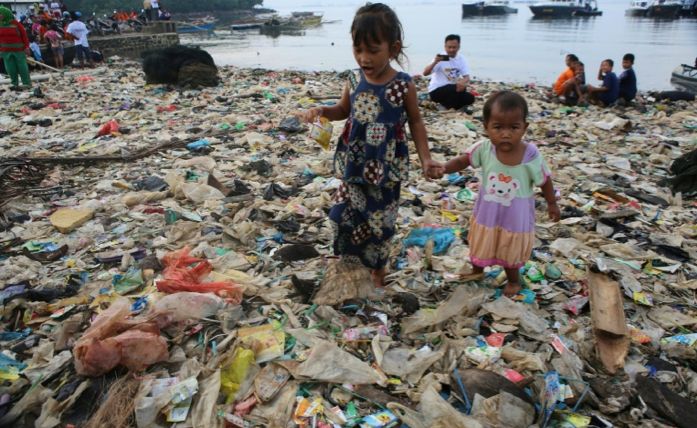OLIVIA AMERCUA WRITES – At the 34th ASEAN Summit, held recently in Bangkok, all member nations made a pledge through the “Bangkok Declaration on Combating Marine Debris” to strengthen their fight against ocean pollution.
ASEAN, which stands for Association of Southeast Asian Nations, is comprised of 10 countries: Thailand, Indonesia, Malaysia, Singapore, Philippines, Vietnam, Brunei, Myanmar, Cambodia, and Laos. What is most important here is that four of the ASEAN countries (Thailand, Indonesia, Vietnam, and Thailand) are in fact four of the five Asian countries that are responsible for more than half of the world’s yearly 8 million tons of plastic waste that horribly pollute our oceans. Were therefore the nice-sounding pro-environment ASEAN resolution little more than the usual high-sounding hot air?
To make matters worst, the summit and pledge come at an especially critical time as even ‘clean-image” Singapore has been hit for its heavily cigarette-littered coastline. Yes, true – but its coastline is most definitely also littered with various single-use plastics such plastic bags and plastic straws. Yet, after the annual “International Coastal Cleanup” located in Singapore and Ocean Conservancy’s help in publishing the data gathered, it was found that – in fact – cigarette butts are by far the top item littered. In 2018, it was recorded that 20,915 cigarette butts were collected during the annual cleanup. This can be compared to the 10,885 straws/stirrers collected and 12,594 plastic beverage bottles collected – both still horrendous numbers.
And so it is wise to remain skeptical as the ASEAN summit itself has been condemned for its poor environmental practices. I wish this were a joke, but … it’s not. While the Event Committee seemed to have had good intentions when ordering the production of T-shirts spun from recycled plastic waste, biodegradable food containers, and 300 chairs made out of recycled paper, it appeared to have missed the point. In trying to prove their love for products made with the environment in mind, they actually harmed the environment through the unnecessary creation of new products for a single event in which items they already possessed could have been used. Greenpeace representative Tara Buakamsri explains it best, “Using recyclable paper does not directly translate into a ‘green’ meeting.”
However, it is key to remain not simply negative and skeptical. By this I mean we can’t simply condemn countries: We must work to consequently hold them accountable, such as pressuring governments to enact immediate, concrete policy changes rather than allowing them to spew vague, unofficial goals.
It is also important to agree that it is foolish to point fingers at governments for their lack of proper plastic waste management and downsizing if we ourselves don’t also personally correct such things. An easy way to make a legitimate impact is by cutting out single-use plastics from your own day to day. Quick switches to reusable straws, cutlery, bags, and bottles make a massive, positive difference in the lives of marine animals as well as in our planet’s health for future generations. We all need to clean up our act.
sources:
https://www.channelnewsasia.com/news/asia/thai-asean-summit-recycling-drive-mocked-by-environmentalists-11653606
https://www.channelnewsasia.com/news/asia/among-worlds-worst-polluters-asean-vows-to-tackle-ocean-waste-11651952
https://www.channelnewsasia.com/news/singapore/single-use-plastic-marine-trash-cigarette-butt-11625024
https://www.channelnewsasia.com/news/asia/southeast-asian-nations-among-worst-ocean-polluters-aim-to-curb-11648874
https://www.forbes.com/sites/hannahleung/2018/04/21/five-asian-countries-dump-more-plastic-than-anyone-else-combined-how-you-can-help/#6c43818d1234

